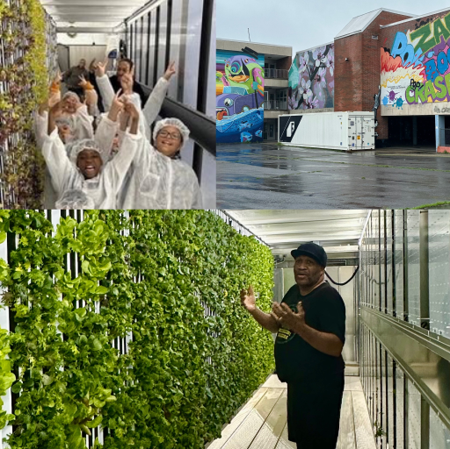Home » CDBG-CV Food Insecurity Program

Location
Massachusetts – statewide
The Commonwealth of Massachusetts addressed food insecurity at a state-wide level with its third allocation of CDBG-CV funds ($27,154,515). As allowed by the CARES Act, funds were made available to fourteen community-based organizations to provide services. The decision to contract directly with philanthropic and nonprofit organizations was a departure from the traditional practice of awarding CDBG funds exclusively to Units of General Local Government. This strategy was intended to deploy food insecurity resources to LMI communities in need as quickly and efficiently as possible and led to the collaboration between the Commonwealth, the Greater Worcester Community Foundation and 2Gether We Eat. The Greater Worcester Community Foundation made awards to 17 subgrantees. One of subgrantee was 2Gether We Eat, a non-profit hydroponic program founded in 2020 that donates 100% of the fruits and vegetables grown back to the community to fight food insecurity. 2Gether We Eat received $275,000 to purchase two hydroponic container farms that were sited at two schools in LMI neighborhoods in Worcester. The farms are built entirely inside a 40-foot container and this vertical freight farm system can grow up to 13,000 crops in just 320 square feet, providing harvests 52 weeks a year. The founder of 2Gether We Eat, Charles Luster, is a former college basketball coach, teacher and businessman who turned his attention to the growing problem of food deserts and food insecurity in his hometown of Worcester. 2Gether We Eat offers a fresh approach to the food insecurity issue and food deserts through hydroponic farming to increase access to affordable and nutritious food. The CDBG-CV funds have not only provided food, but also fostered student engagement, community collaboration, and education. These benefits are priceless. It is anticipated that two to four tons’ worth of crop yield annually will be donated and sold to community nonprofits, and 170 youth and adult learners will be educated annually. Revenue earned from excess crop sales is utilized to sustain the program.